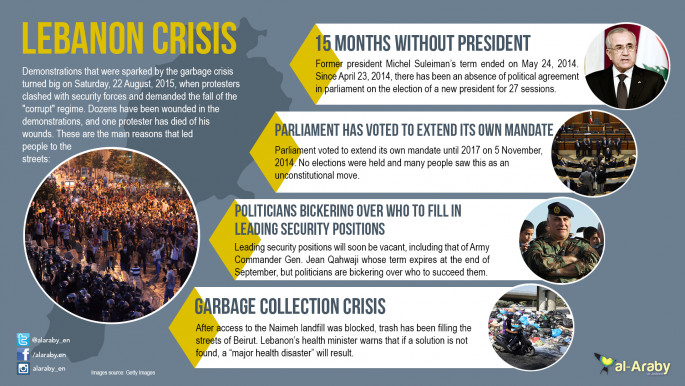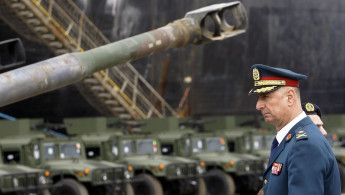Lebanon: Amid regional turmoil, US doubling military assistance
The Lebanese Army is a top priority for US interests in Lebanon. To be sure, the Lebanese army is part of the international coalition in the war against the Islamic State group (IS, formerly ISIS).
The United States security assistance to Lebanon has surpassed $1.3 billion in value over the past 10 years, and this year, Lebanon will be the fifth-largest recipient of US foreign military aid, according to press statements by the US embassy in Beirut.
The latest statement came on Thursday, with US Secretary of State John Kerry announcing Washington would boost military assistance to the Lebanese Army this year
"The United States will double to more than $150 million the amount of military assistance we are providing to the LAF [Lebanese Armed Forces] this year compared to last," Kerry said on the sidelines of the UN General Assembly.
The International Support Group for Lebanon was set up in 2013 to help Lebanon cope with the Syrian refugee crisis.
 |
|
| [Click to enlarge] |
Kerry also said that the funds came in addition to the $59 million in border security assistance, which was announced in Beirut earlier in September by US Ambassador to Lebanon David Hale.
The United States has made a series of military aid donations to the Lebanese Army over the past couple of years to help it fight Syria-based Islamist militants operating on the fringes of Lebanon's border with Syria.
The United Kingdom is also a key provider of security assistance to Lebanon.
Kerry raised fears that the ongoing war in Syria, the influx of Syrian refugees and the presence of extremist militants posed grave threats to Lebanon's stability.
"Clearly, Lebanon needs the help of its international partners to confront these challenges," he added.
The nature of US military equipment provided to Lebanon is chosen to reflect counter-insurgency needs, but also with Israel in mind.
Indeed, no weapons systems that could alter Israel's tactical advantage over Lebanon - with which it is still officially at war - are transferred to the Lebanese government.
Given the close ties between the Lebanese army and Hizballah, officials in Israel and the United States are particularly wary that some US-made weapons could make their way into Hizballah's hands.



